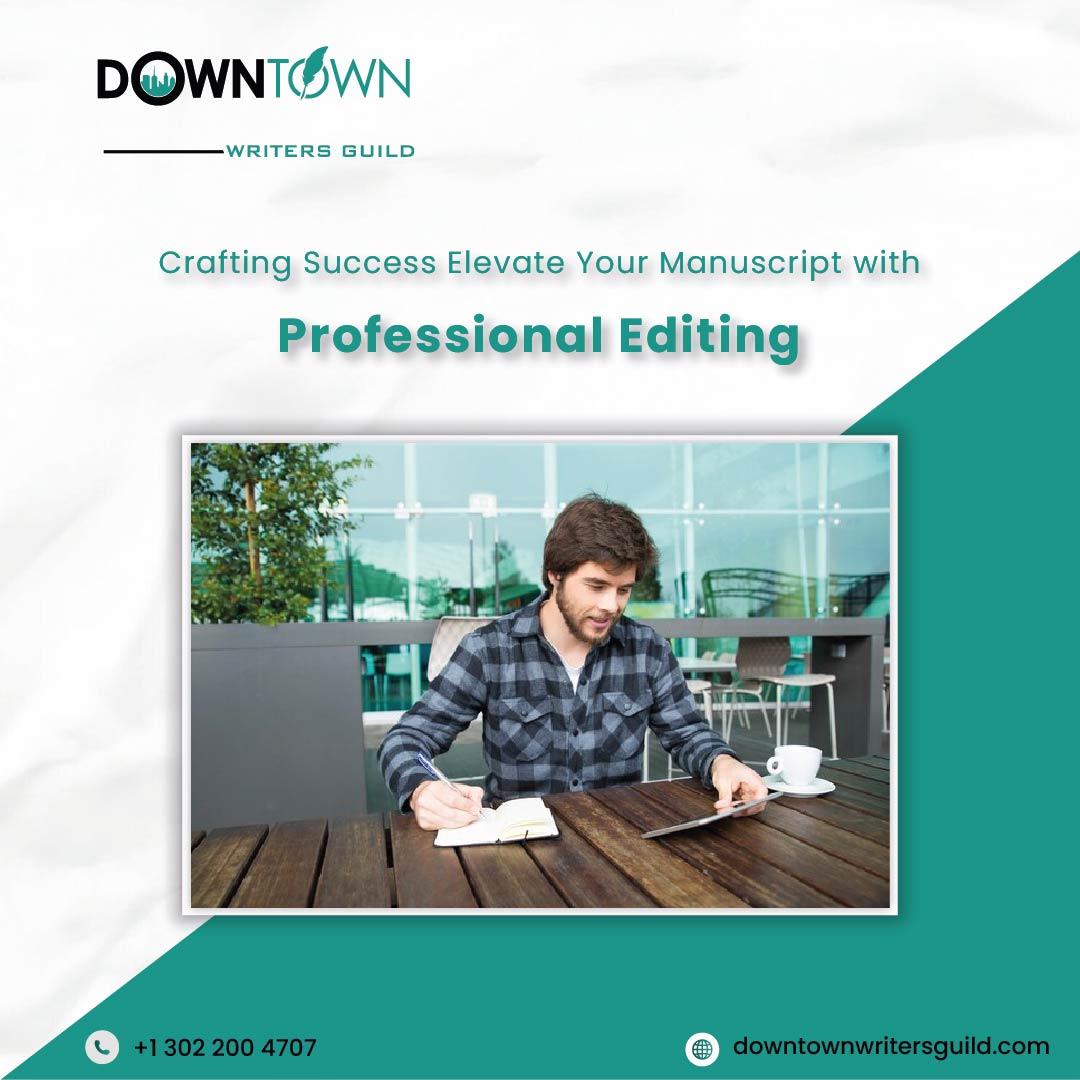Writing is a deeply personal and creative process, but the journey from a raw manuscript to a polished, publishable work involves more than just putting words on paper.

Professional editing plays a pivotal role in transforming your manuscript into a literary masterpiece, ensuring clarity, coherence, and resonance with your target audience.
In this exploration of the editing journey, we delve into why professional editing is crucial, the types of editing available, and how it can elevate your manuscript to new heights.
The Importance of Professional Editing
1. Clarity and Coherence:
Professional editors bring a fresh perspective to your manuscript, identifying areas where clarity and coherence can be enhanced. They ensure that your ideas flow logically, making it easy for readers to follow and engage with your narrative.
2. Language Refinement:
Editors refine your language to achieve precision and impact. They eliminate redundancies, tighten sentences, and polish prose, enhancing the overall readability of your work. This linguistic finesse elevates the quality of your writing, leaving a lasting impression on your audience.
3. Consistency:
Maintaining consistency is vital in creating a seamless reading experience. Professional editors scrutinize details such as character names, timelines, and narrative voice, ensuring that your manuscript remains cohesive and free from discrepancies.
4. Audience Engagement:
Editors consider your target audience, tailoring the manuscript to resonate with their expectations and preferences. This strategic approach maximizes the impact of your work, fostering a deeper connection between your writing and your readers.
Types of Professional Editing
1. Developmental Editing:
At the foundational level, developmental editing addresses the structure and content of your manuscript. Editors provide comprehensive feedback on plot development, character arcs, and overall narrative coherence. This stage is essential for refining the core elements of your story.
2. Line Editing:
Line editing focuses on the finer nuances of language and style. Editors delve into sentence-level improvements, refining syntax, and ensuring a harmonious rhythm throughout your manuscript. This stage enhances the overall prose, making your writing more compelling.
3. Copy Editing:
Copy editing is a meticulous process that examines grammar, punctuation, and consistency. Editors ensure that your manuscript adheres to grammatical conventions, correcting errors and refining sentence structures. This stage prepares your work for publication by enhancing its clarity and professionalism.
4. Proofreading:
The final stage, proofreading, is a meticulous review for typographical errors, formatting issues, and minor inconsistencies. This thorough examination guarantees that your manuscript is free from distracting errors, presenting a polished and professional final product.
Collaborative Process with Editors
1. Open Communication:
A successful collaboration with a professional editor is built on open communication. Discuss your goals, vision, and any specific concerns you have for your manuscript. This dialogue ensures that the editing process aligns with your creative intent.
2. Receptive to Feedback:
Approach the editing process with a willingness to receive constructive feedback. Editors are partners in refining your work, and their insights can guide you toward strengthening the narrative, character development, and overall impact of your writing.
3. Iterative Revisions:
The editing process often involves multiple rounds of revisions. Embrace this iterative approach as an opportunity to refine and enhance your manuscript. Each revision brings you closer to the polished and perfected version of your work.
Navigating the Editing Landscape
1. Finding the Right Editor:
Selecting the right editor for your manuscript is crucial. Consider an editor’s expertise, experience in your genre, and previous works. Many professional editing services offer diverse editing packages to cater to different author needs.
2. Budget Considerations:
Professional editing is an investment in your writing journey. Establish a budget for editing services and explore options that align with your financial considerations. Many editors offer transparent pricing structures, making it easier for authors to plan accordingly.
3. Timely Editing Process:
Coordinate with your editor to establish a realistic timeline for the editing process. Timely revisions and feedback contribute to a smoother collaboration, ensuring that your manuscript progresses toward its final form efficiently.
The End Result: A Refined Masterpiece
As your manuscript undergoes the transformative process of professional editing, you are not just refining words on a page—you are sculpting a literary masterpiece. The commitment to this craft, the collaboration with skilled editors, and the dedication to continuous improvement will ultimately yield a work that stands out, captivates readers, and solidifies your place in the literary landscape.
In the journey of crafting success, professional editing serves as the beacon that guides your manuscript toward excellence. By embracing the collaborative nature of the editing process, authors elevate their work to new heights, ensuring that their stories resonate with authenticity, precision, and lasting impact. So, as you embark on the quest to refine your manuscript, remember that each edit brings you one step closer to the manifestation of your literary vision—a success crafted with dedication, passion, and the invaluable support of professional editing.
FAQs
1. Q: Why is professional editing important for my manuscript?
A: Professional editing enhances clarity, coherence, and audience engagement, ensuring your manuscript reaches its highest potential.
2. Q: What types of professional editing are available?
A: Developmental editing focuses on structure, line editing refines language, copy editing ensures consistency, and proofreading reviews for errors and formatting issues.
3. Q: How do I find the right editor for my manuscript?
A: Consider an editor’s expertise, experience in your genre, and previous works. Many professional editing services offer diverse packages to cater to different author needs.
4. Q: What is the collaborative process with editors like?
A: Open communication, receptiveness to feedback, and iterative revisions are key. Authors and editors work together to refine and enhance the manuscript.
5. Q: What is the end result of professional editing?
A: Professional editing transforms your manuscript into a refined masterpiece, elevating it to stand out, captivate readers, and leave a lasting impact in the literary landscape.
